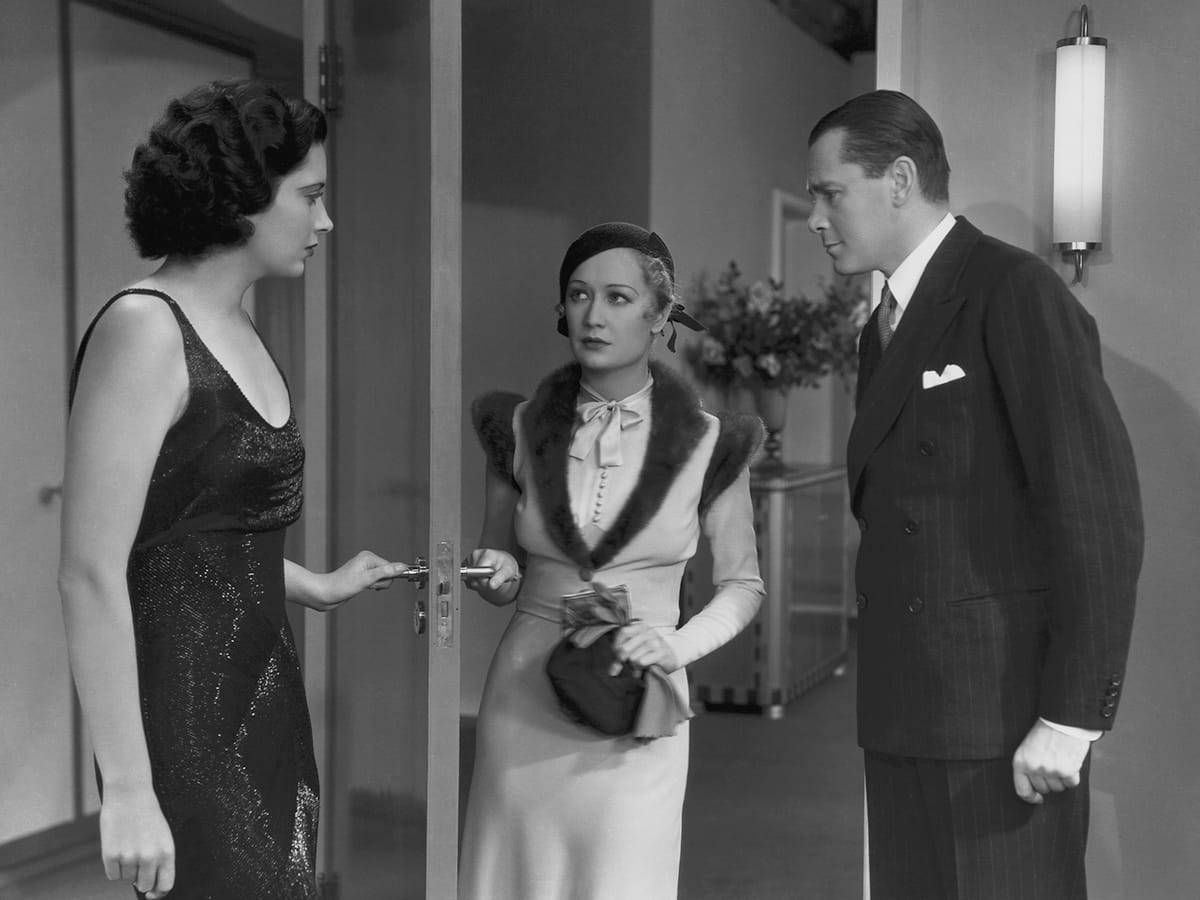 |
Kay Francis, Miriam Hopkins, and Herbert Marshall in Trouble in Paradise |
Cast: Miriam Hopkins, Kay Francis, Herbert Marshall, Charles Ruggles, Edward Everett Horton, C. Aubrey Smith, Robert Greig. Screenplay: Samson Raphaelson, Grover Jones, based on a play by Aladar Laszlo. Cinematography: Victor Milner. Art direction: Hans Dreier. Music: W. Franke Harling. Costume design: Travis Banton.
If you want a good example of the damage done to American movies by the enforcement of the Production Code, look no further than Trouble in Paradise. Ernst Lubitsch's comic masterpiece could not have been made two years later, when the Code went into effect. It could not even be re-released or shown commercially until the death of the Code in the late 1960s. The loss to the art of cinema is incalculable, even though filmmakers including Lubitsch went on to find other ways of being witty and sexy. On the face of it, Trouble in Paradise sounds trivial: Con artists Lily (Miriam Hopkins) and Gaston (Herbert Marshall) fall in love when each tries to filch the other's belongings: a wallet, a brooch, a watch, a garter. So they team up and go off to Paris where their target becomes the wealthy and beautiful Mariette Colet (Kay Francis), owner of a leading parfumerie. What will happen to Lily when Gaston falls in love with Mariette? What makes it work is Lubitsch's unflagging wit: A film that will soon be wafting the scent of Mme. Colet's perfume opens with a Venetian garbage man dumping the contents of a can into a loaded garbage scow and punting off into a canal singing "O Sole Mio." It's only the first of the many Lubitsch touches. But perhaps the greatest touch of all is the casting: Hopkins was never funnier or sexier and Francis never more radiant. I have to admit that on my first viewing I was initially put off by the casting of Marshall: a sad-eyed, somewhat slumped middle-aged man with a wooden leg. (The scenes in which Gaston sprints up and down Mariette's staircase are probably the work of a body double.) But Marshall turns out to be perfectly charming in the role, credibly wooing both leading ladies. A heartthrob like Cary Grant would have wrecked the chemistry, becoming the apex of what needs to be an equilateral triangle. William Powell would have been too vivid in the part, echoing his previous teamings with Francis. Fredric March had a touch too much of the ham -- Marshall succeeds by underplaying the role. There are some other nice surprises: Those peerless character actors Charles Ruggles and Edward Everett Horton were usually used as comic relief, but Trouble in Paradise is a comedy that needs no relieving; Ruggles and Horton are there to do their own thing and they do it well. The ending, which flouts a key commandment of the Code, is suitably bittersweet, but paradise needs a little trouble to make you appreciate it the more.
